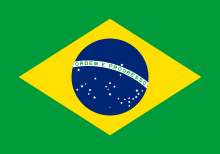- Clotilde de Vaux
-
Clotilde de Vaux 
Born 3 April 1815
Paris, FranceDied 5 April 1846 (aged 31)
7 rue Payenne, Paris, FranceEducation Maison d'éducation de la Légion d'honneur Occupation poetry, writing Religion Roman Catholic Church Parents House of Ficquelmont Clotilde de Vaux, was born Clotilde-Marie de Ficquelmont on April 3, 1815 in Paris, France and died on April 5, 1846 in Paris, France. She gave philosopher Auguste Comte the inspiration for the « Religion of Humanity ».
Contents
Biography
Elder daughter of a branch of the family of ancient nobility, sister of French military officer and mathematician Maximilien-Marie de Ficquelmont, follower of Positivism, Clotilde de Vaux was educated at the prestigious Maison d'éducation de la Légion d'honneur. In 1835, according to traditions of nobility, she had a marriage of convenience with a nobleman, Amédée de Vaux, tax perceptor of Méru. But Vaux turned out to be nothing but a rogue. After incurring enormous gambling debts, he eventually left his wife and fled to Belgium.
According to the Code Civil of the time, women were unable to remarry without previously being divorced and, since no divorce had been issued, Clotilde was forbidden to do so. Consequently, she returned to Paris, first living at her brother's home before moving to her own place in Marais' rue Payenne (certainly at n°7). One of her uncles, Minister-president of the Austrian Empire, granted her a housing allowance. Clotilde decided to follow in her mother's steps - Countess Henriette de Ficquelmont used to hold a salon and wrote several Naturalist-inspired novels - by embarking on a writer's career and writing short stories for literary magazines.
In October 1844, when visiting her brother, Clotilde met one of his Polytechnique's Professors, philosopher Auguste Comte. The first known letter from Comte to Clotilde dated from April 30, 1845 and from that day on it is very clear that he is in love with her. A love Clotilde, fervent Catholic, firmly rejected. Nonetheless she agreed to follow up with their correspondence and Comte's passionate love kept growing until Clotilde suddenly died of tuberculosis a year later.
Comte, recognizing her as his muse, was highly impressed by her moral superiority which him the key to understand the religious dimension of the human condition. But if Clotilde was a fervent Catholic, Comte only considered Catholicism to be a step[1] towards the positive stage. Nonetheless, Clotilde's faith persuaded him to create a religion for positivist societies in order to fulfil the cohesive function once held by traditional worship.
Birth of the Religion of Humanity
 The motto Ordem e Progresso ("Order and Progress") in the flag of Brazil is inspired by Auguste Comte's motto of positivism: L'amour pour principe et l'ordre pour base; le progrès pour but ("Love as a principle and order as the basis; Progress as the goal"). Several of those involved in the military coup d'état that deposed the monarchy and proclaimed Brazil a republic were followers of the ideas of Comte.[2]
The motto Ordem e Progresso ("Order and Progress") in the flag of Brazil is inspired by Auguste Comte's motto of positivism: L'amour pour principe et l'ordre pour base; le progrès pour but ("Love as a principle and order as the basis; Progress as the goal"). Several of those involved in the military coup d'état that deposed the monarchy and proclaimed Brazil a republic were followers of the ideas of Comte.[2]
In mourning after Clotilde's death, Comte dedicated himself to reorganise his previous philosophical system into a new positivist secular religion: the Positivist Church or Religion of Humanity.
Comte's secular religion is no vague effusion of humanistic piety, but a complete system of belief and ritual, with a calendar reform called the 'positivist calendar' (with Sainte Clotilde's day each 6 April and a Day of Holy Women), liturgy and sacraments, priesthood and pontiff, all organized around the public veneration of Humanity, the Nouveau Grand-Être Suprême (New Supreme Great Being) made after Clotilde de Vaux.
- In Système de politique positive (1851–1854), Auguste Comte expressed his idea of a « religion of Humanity », whose pillars are:
- altruism, leading to generosity and selfless dedication to others.
- order : Comte thought that after the French Revolution, society needed restoration of order.
- progress : the consequences of industrial and technical breakthroughs for human societies.
- In Catéchisme positiviste (1851), Comte defined the Church of Humanity's sacraments :
- the Introduction (nomination and sponsoring)
- the Admission (end of education)
- the Destination (choice of a career)
- the Marriage,
- the Retirement (age 63),
- the Séparation, social extreme unction,
- the Incorporation, 3 years after death.
Comte's "Religion of Humanity" was rather unsuccessful in France but has been very influential in Latin America, especially in Brazil (see above) and has inspired the rise of the "Church of Humanity" in England and its variant in New York City, both being extremely small today.
Clotilde de Vaux's writings
- Pensées d'une fleur, poems
- Lucie, series of short stories published in Le National
- Willelmine, short story
- Citations :
- « There is no higher pleasure than the one of dedication. »
- « Mankind, more than other species, needs to tie down to duties to ensure true feelings. »
- (On Society) « Its institutions deserve respect as the toil of times... »
- « It's unworthy of noble hearts to spread the confusion they feel. »
References
- Henri Gouhier, La vie d'Auguste Comte (1931, rééd. 1997), libr. phil. Vrin, Coll. bibl. des textes Phil.,
- André Thérive, Clotilde de Vaux ou La déesse morte, Albin Michel, 1957.
- ^ He considered Catholicism to be his second stage: the metaphysical stage
- ^ BRAZIL: Order and Progress, Ronald Hilton, World Association of International Studies Forum Q&A, 4/27/03
Categories:- 1815 births
- 1846 deaths
- In Système de politique positive (1851–1854), Auguste Comte expressed his idea of a « religion of Humanity », whose pillars are:
Wikimedia Foundation. 2010.


